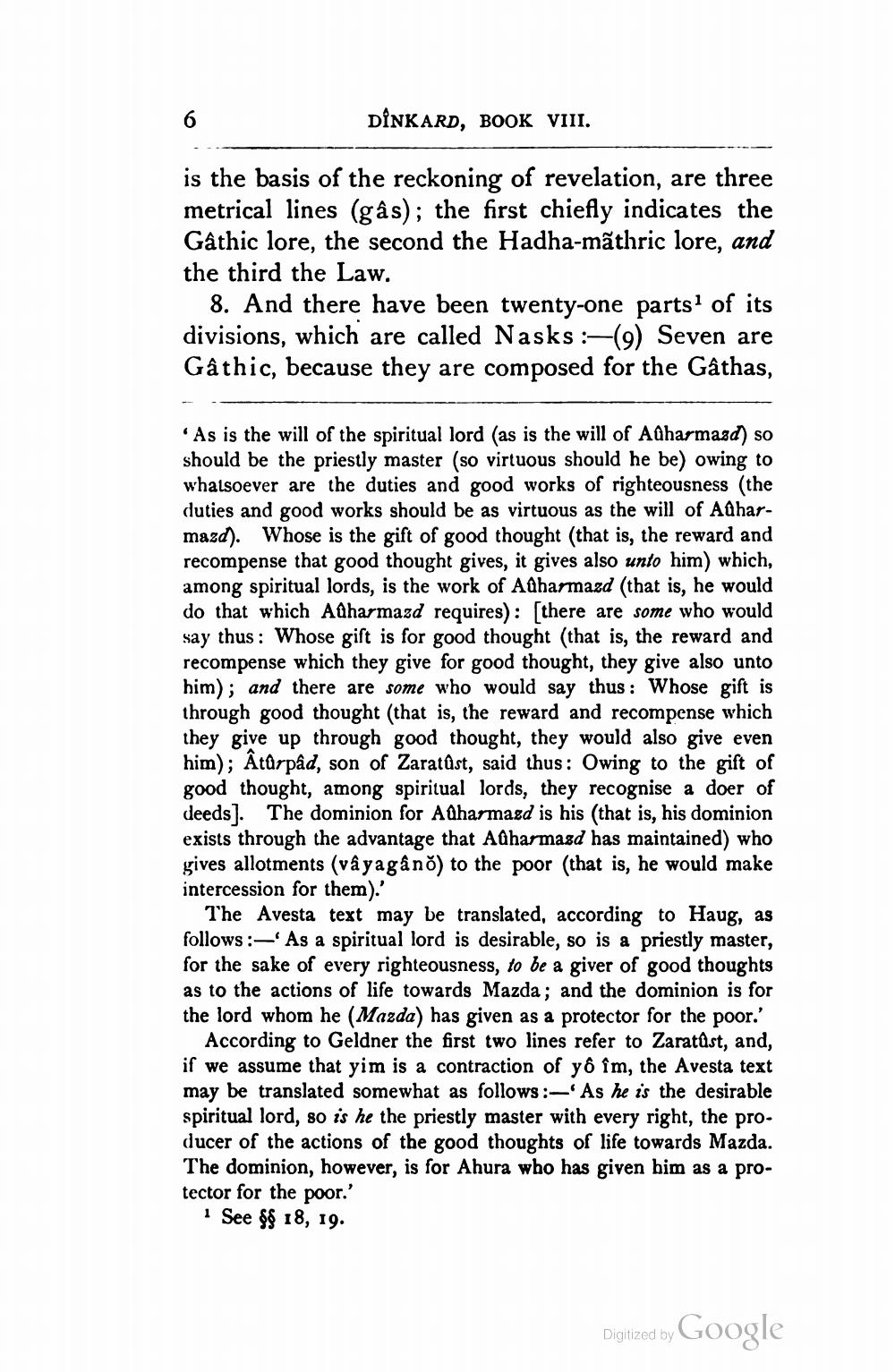________________
DINKARD, BOOK VIII.
is the basis of the reckoning of revelation, are three metrical lines (gâs); the first chiefly indicates the Gâthic lore, the second the Hadha-mãthric lore, and the third the Law.
6
8. And there have been twenty-one parts1 of its divisions, which are called Nasks:-(9) Seven are Gâthic, because they are composed for the Gâthas,
'As is the will of the spiritual lord (as is the will of Aûharmazd) so should be the priestly master (so virtuous should he be) owing to whatsoever are the duties and good works of righteousness (the duties and good works should be as virtuous as the will of Aûharmazd). Whose is the gift of good thought (that is, the reward and recompense that good thought gives, it gives also unto him) which, among spiritual lords, is the work of Aûharmazd (that is, he would do that which Aûharmazd requires): [there are some who would say thus: Whose gift is for good thought (that is, the reward and recompense which they give for good thought, they give also unto him); and there are some who would say thus: Whose gift is through good thought (that is, the reward and recompense which they give up through good thought, they would also give even him); Aturpâd, son of Zaratust, said thus: Owing to the gift of good thought, among spiritual lords, they recognise a doer of deeds]. The dominion for Aûharmazd is his (that is, his dominion exists through the advantage that Aûharmazd has maintained) who gives allotments (vâyagâno) to the poor (that is, he would make intercession for them).'
The Avesta text may be translated, according to Haug, as follows: As a spiritual lord is desirable, so is a priestly master, for the sake of every righteousness, to be a giver of good thoughts as to the actions of life towards Mazda; and the dominion is for the lord whom he (Mazda) has given as a protector for the poor.'
According to Geldner the first two lines refer to Zaratust, and, if we assume that yim is a contraction of yô îm, the Avesta text may be translated somewhat as follows:-'As he is the desirable spiritual lord, so is he the priestly master with every right, the producer of the actions of the good thoughts of life towards Mazda. The dominion, however, is for Ahura who has given him as a protector for the poor.'
1 See §§ 18, 19.
Digitized by
Google




